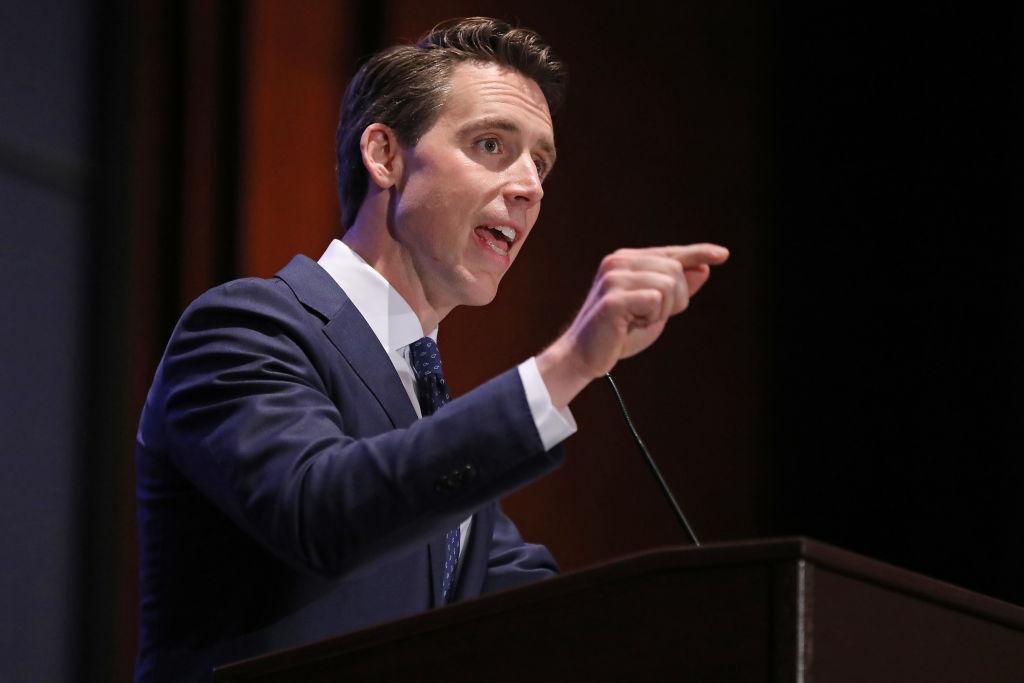Citing the “urgent and worsening situation in Hong Kong,” Sen. Josh Hawley (R-Mo.) called on U.S. Ambassador to the U.N. Kelly Craft to consider introducing a resolution at the world assembly condemning China’s violation of the 1984 treaty that governs the former British colony.
“To protect the lives of those advocating for their basic liberties, I believe the time has come to consider introducing a United Nations resolution to condemn and hold accountable the People’s Republic of China (PRC) for its apparent treaty violations,” Hawley said in a letter to Craft made public on Nov. 20.
Hawley was referring to the 1984 Sino–British Joint Declaration that ended Hong Kong’s colonial status and returned it to China under the principle of “one country, two systems.”
The agreement, which China and Great Britain registered with the U.N. as an international treaty, protects Hong Kong as a “special administrative region” against imposition of Communist China’s Marxist system, thus preserving its capitalist economy and key elements of Western civil liberties, including the freedoms of speech and assembly.
A spokesman for the Chinese foreign ministry declared in 2017, however, that, “Now Hong Kong has returned to the motherland’s embrace for 20 years, the Sino–British Joint Declaration, as a historical document, no longer has any practical significance, and it is not at all binding for the central government’s management over Hong Kong.”
Hawley cited the increasingly violent responses by Hong Kong authorities to the continuing protests that erupted against a proposed law allowing individuals arrested in Hong Kong to be transferred to mainland China for trial.
“For five months, Beijing and its proxy chief executive in Hong Kong have been attempting to alter the city’s status and restrict its citizens’ freedoms, in apparent violation of Hong Kong’s Basic Law and the 1984 Joint Declaration,” Hawley wrote.
“The Hong Kong executive has authorized violent force against unarmed demonstrators, has radically restricted the right of citizens peaceably to assemble, has intervened in District Council candidate selection, has illegally banned the use of face masks, and repeatedly laid siege to Hong Kong universities.”
As a result, Hawley told Craft that he believes “we should consider asking the United Nations’ Committee Against Torture (UNCAT), which reviewed the Chinese government’s treatment of protesters during the 2014 Umbrella Movement, to investigate Beijing and its proxies’ current treatment of protestors in Hong Kong.”
The UNCAT report on the 2014 protests expressed concern about “consistent reports of excessive use of tear gas, batons, and sprays against protesters during the 79-day protest of the so-called ‘umbrella’ or ‘occupy’ movement in 2014.”
“It is also concerned at consistent reports that police resorted to violence against more than 1,300 people, and around 500 were subsequently admitted to hospitals.
“The committee expresses concern at allegations of threats of sexual violence and assaults by the police to demonstrators while they were following the instructions of leaving the scene.”
Hawley has been among the Senate’s most vocal defenders of Hong Kong’s protesters since he traveled there in September and witnessed multiple demonstrations.
He was an original co-sponsor of the Hong Kong Human Rights and Democracy Act of 2019, approved unanimously by the Senate on Nov. 19. A version of the measure was approved on Oct. 15 by the House of Representatives.
The measure specifies that the U.S. Secretary of State must report annually to Congress on whether Hong Kong remains autonomous from the mainland Chinese authorities, as required by its special trading status with the United States.
Hawley also introduced the “Hong Kong Be Water Act,” which would freeze financial assets of officials who violate the civil liberties of Hong Kong citizens.
The “Be Water” phrase recalls what Hawley told the Senate he heard during his September visit from protesters who said they had to be fluid and move quickly when confronting police.





